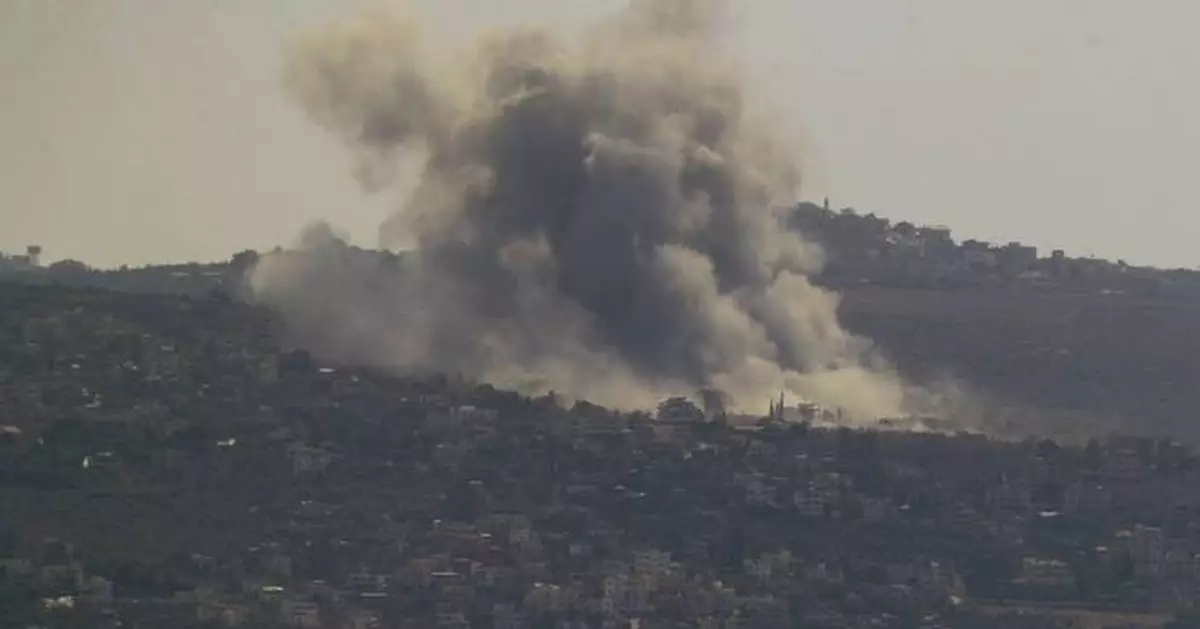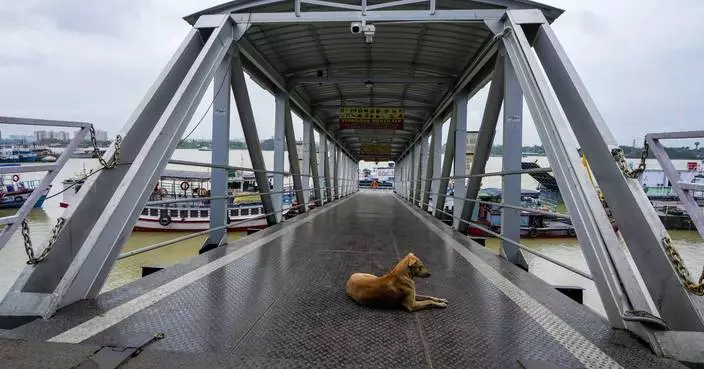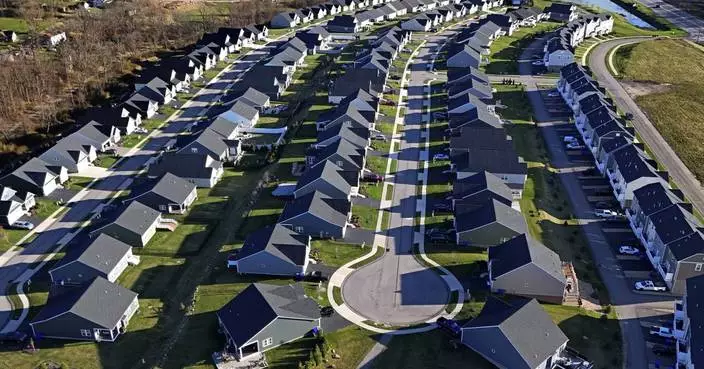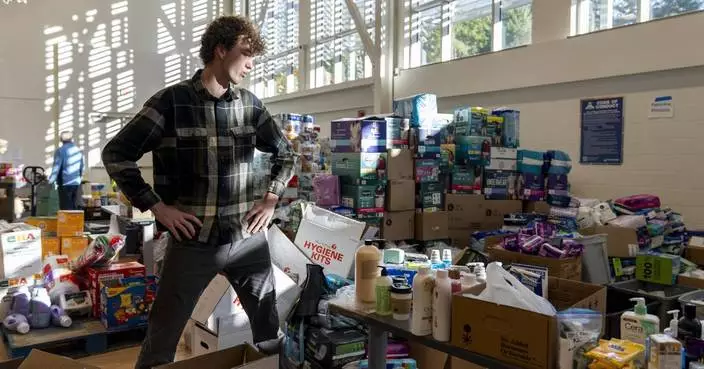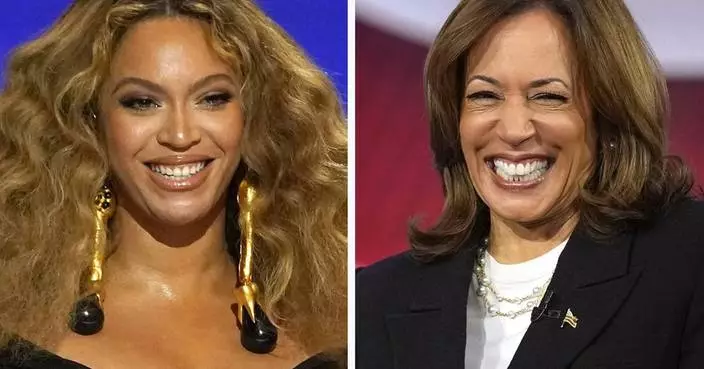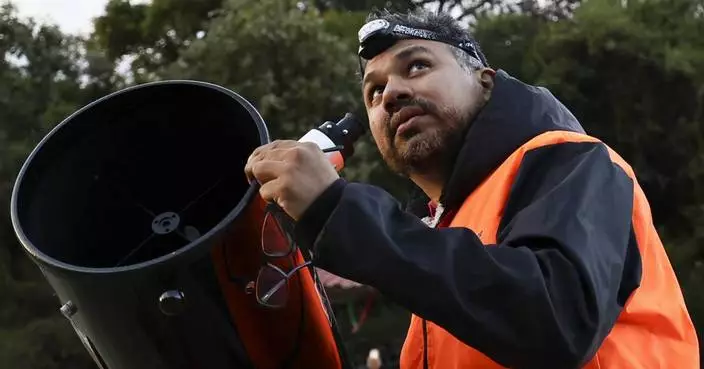BEIRUT (AP) — An Israeli airstrike on a compound housing journalists in southeast Lebanon has killed three media staffers, Lebanon’s state-run National News Agency said Friday.
Local news station Al Jadeed aired footage from the scene — a collection of chalets that had been rented by various media outlets — showing collapsed buildings and cars marked PRESS covered in dust and rubble. The Israeli army did not issue a warning prior to the strike.
The Beirut-based pan-Arab Al-Mayadeen TV said two of its staffers — camera operator Ghassan Najar and broadcast technician Mohammed Rida — were among the journalists killed early Friday. Al-Manar TV of Lebanon’s Hezbollah group said its camera operator Wissam Qassim was also killed in the airstrike on the Hasbaya region.
The Israeli military did not immediately comment on the strike.
Ali Shoeib, Al-Manar’s well-known correspondent in south Lebanon, was seen in a video filming himself with a cellphone saying that the camera operator who had been working with him for months was killed. Shoeib said the Israeli military knew that the area that was struck housed journalists of different media organizations.
“We were reporting the news and showing the suffering of the victims and now we are the news and the victims of Israel’s crimes,” Shoeib added in the video aired on Al-Manar TV.
The Hasbaya region has been spared much of the violence along the border and many of the journalists now staying there have moved from the nearby town of Marjayoun that has been subjected to sporadic strikes in recent weeks. Earlier in the week, a strike hit an office belonging to Al-Mayadeen on the outskirts of Beirut’s southern suburbs, according to Lebanon’s Health Ministry.
Several journalists have been killed since exchange of fire began along the Lebanon-Israel border in early October last year.
In November 2023, two journalists for Al-Mayadeen TV were killed in a drone strike. A month earlier, Israeli shelling in southern Lebanon killed Reuters videographer Issam Abdallah and wounded other journalists from France’s international news agency, Agence France-Presse, and Qatar’s Al-Jazeera TV.
Hamas-led militants stormed into southern Israel on Oct. 7, 2023, killing some 1,200 people, mostly civilians, and abducting another 250. Around 100 hostages are still inside Gaza, a third of whom are believed to be dead.
Israel’s retaliatory offensive has killed over 42,000 Palestinians, according to Gaza’s Health Ministry, which does not say how many were combatants but says women and children make up more than half the fatalities. The Israeli military says it has killed over 17,000 fighters, without providing evidence.
The Israeli campaign has since expanded to Lebanon, where Israel launched a ground invasion Oct. 1, after trading fire with the Hezbollah militant group for much of the past year.
Lebanese health officials reported another day of intense airstrikes and shelling Thursday, which they said killed 19 people over 24 hours and raised the overall Lebanese death toll to 2,593 since October 2023.
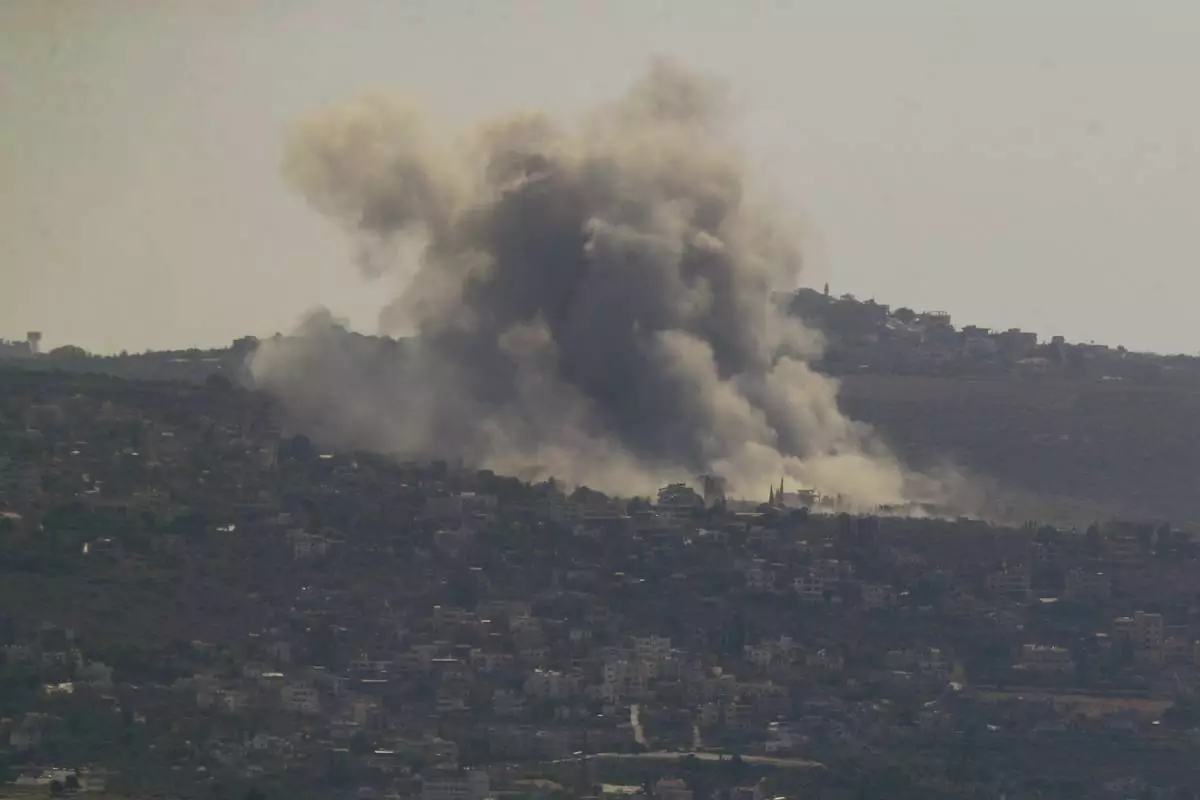
Smoke rises from an Israeli airstrike on Mansouri village, as it seen from the southern city of Tyre, south Lebanon, Thursday, Oct. 24, 2024. (AP Photo/Mohammed Zaatari)
SOFIA, Bulgaria (AP) — Bulgarians will cast ballots on Sunday in the seventh general elections in just over three years as the country faces growing political instability that might further enhance the popularity of pro-Russian and far-right groups.
Of the six elections since 2021, only two have produced an elected government, but both coalitions collapsed after trying to introduce reforms, take on graft, and reduce reliance on Russia.
There was no clear winner in the latest vote, held in June, and the seven groups elected to the fragmented legislature were unable to put together a viable coalition. Observers suggest that the coming vote will produce more of the same and that chances for an immediate end of the political stalemate are low.
Pollsters predict that voter fatigue and disillusionment with the political system will result in low turnout and another fractured parliament where populist and pro-Russian groups could increase their representation.
A record low turnout is expected and at the same time a high number of votes which have not been cast freely, said prominent analyst Stoyana Georgieva. These include instances where parties have paid for votes in cash but also where local authorities or corporations have put pressure on voters to cast their ballots in a certain way.
Georgieva said it was possible that the main pro-Russia party in Bulgaria, Vazrazhdane, would emerge as the second-largest group in parliament. The far-right, ultra-nationalist and populist party demands that Bulgaria lift sanctions against Russia, stop helping Ukraine, and hold a referendum on its membership in NATO.
The Balkan country of 6.7 million has been gripped by political instability since 2020, when nationwide protests erupted against corrupt politicians that had allowed oligarchs to take control of state institutions.
Bulgaria is one of the poorest and most corrupt European Union member states. Attempts to fight graft are an uphill battle against an unreformed judiciary widely accused of serving the interests of politicians.
Georgieva said she does not expect the next parliament to produce a widely acceptable compromise. “At best, it could be a compromise on the edge of the least evil in Bulgaria. In this turbulent situation in the region — with the war in Ukraine, the war in the Middle East — both conflicts are very close to Bulgaria and Bulgaria is very vulnerable,” she told The Associated Press.
According to Georgieva, three main groups of parties will enter the next Parliament. “The first group are the kleptocratic parties led by the until recently ruling GERB, which is also the first political force whose leader and former prime minister is responsible for the implementation of a corrupt model in Bulgaria,” Georgieva said referring to former Prime Minister Boyko Borissov.
“The second group … are parties that in some honest way try to defend the causes of justice and liberal democracy; and a third group of parties that are openly pro-Putin.”
It is very likely, said Georgieva, that after these elections some kind of government will be formed between the democrats and the kleptocratic parties that still hold pro-European and pro-Ukraine positions.
While the successive elections since 2020 have produced broadly similar results, the current election will add some changes to the political landscape. Two of the oldest parties — the Socialists and the Movement for Rights and Freedoms — have been seriously shaken by internal conflicts.
The MRF, which traditionally represented the ethnic Turkish vote, recently split into two rival factions, one around party founder Ahmed Dogan, and the other behind U.S.-sanctioned businessman and media tycoon Delyan Peevski.
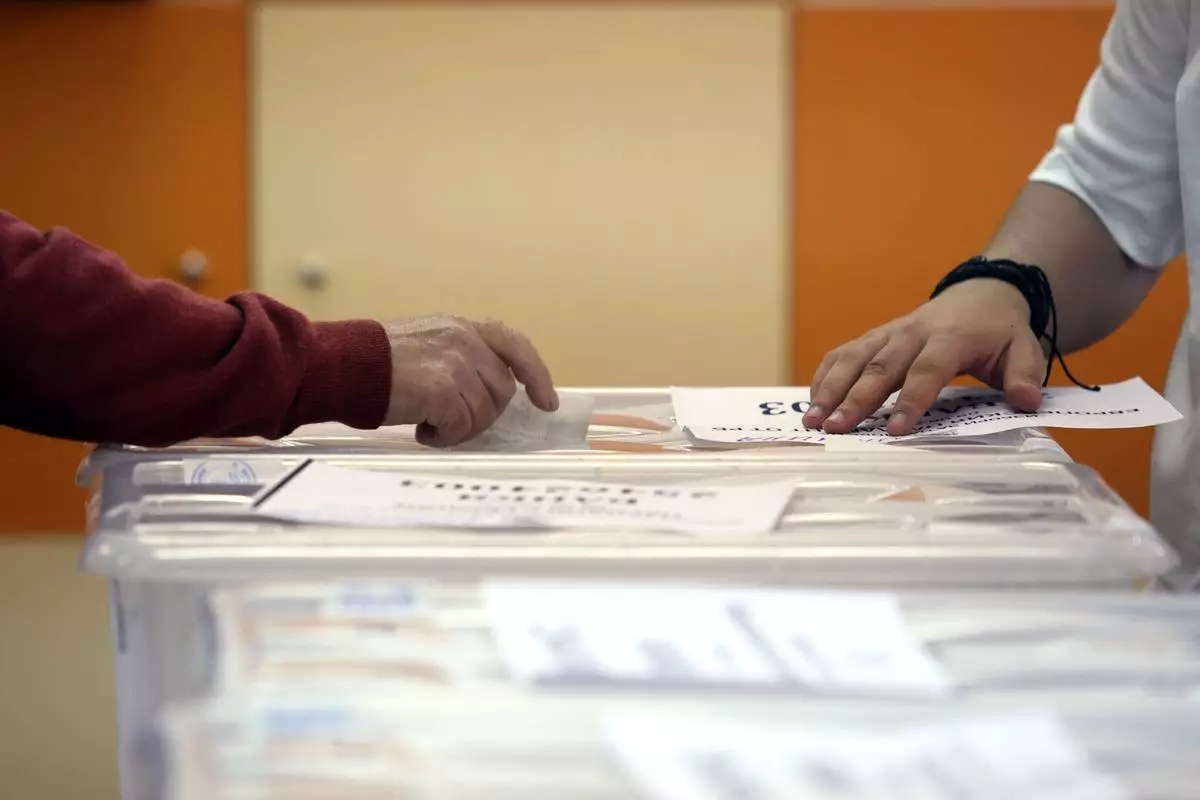
FILE - An early voter casts his vote in the polling station on the outskirts of Sofia, Bulgaria, June 9, 2024. (AP Photo/Valentina Petrova, File)



